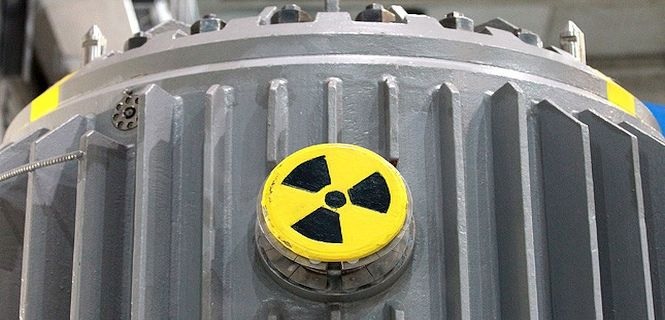Pakistan’s nuclear program has always been the discussion of the western world. It has often been criticized on the assumption that Pakistan’s nuclear program is not secure. Many have formulated farfetched theories revolving around the risk of Pakistan’s nuclear arsenal falling into the hands of terrorist elements. It seems that such baseless rumors are started to pressurize Pakistan whenever a strategic issues like Pakistan’s membership of Nuclear Supplier’s Group (NSG) is under discussion. Such claims have been proven to be incorrect over time and the safety of Pakistan’s nuclear facilities has been by the IAEA itself, multiple times.
In September 2015 Director General (DG) International Atomic Energy Agency (IAEA) Yukiya Amano praised Pakistan’s impressive nuclear security record spanning over four decades of nuclear power plant operation. This claim might be enough, for most, to prove that Pakistan’s nuclear assets are safe. There are, however, some who are still not satisfied as they take the matter of security of nuclear assets very seriously or so they claim in order to justify the bashing of Pakistan’s nuclear program. Now there is mere propaganda that Pakistan tactical warheads, being of small size can be stolen. As it is difficult to digest to some that Pakistan possesses Tactical Warheads, which a few countries have.
The truth is that Pakistan maintains a foolproof security system for its Nuclear arsenal strategic or tactical and it has been proven for than dozen times that Pakistan is a responsible nuclear power and there is no reason for anyone to speak against Pakistan’s membership mainly due to safety and security measures undertaken by Pakistan for its nuclear assets and also because India has been made an unofficial member of NSG despite of their lax security.
Mr. HasanEhtisham, in his blog ‘Is India’s Nuclear Arsenal Safe?’, published on September 15, 2013 in The Express Tribune Blogs, sheds light on the same issue.
He points out that ‘There is a largely ignored history of Indian illegal nuclear procurement, poor nuclear export controls and mismanagement of nuclear facilities. For instance, India diverted Canadian-supplied fuel for research and generating power to make nuclear weapons. But there is more to the nuclear program than meets the unsuspecting eye.’
He further goes on to say that ‘In India, nuclear facilities on coastlines is exposed to natural disasters like the monstrous tsunami of 2004. Beside the damage to the environment, there are numerous cases where workers were exposed to high radiation doses. There are 350 documented cases of radiation exposure that were reported at Tarapur, which is India’s first nuclear station.’
According to an Australian newspaper (The Age), there is no national policy in India on nuclear and radiation safety. Despite all this, India has never made an effort to adopt world standards and best practices for nuclear safety. Radioactive waste disposal in Indian rivers is an undocumented environmental tragedy in India.
According to the Daily Mail’s reports, most of India’s top nuclear facilities are located in exceedingly Naxal terrorist struck districts of India or in the “Red Corridor”. Some of the sensitive nuclear installations situated in this “Red Corridor” are, Uranium Corporation Of India Limited, Talcher Heavy Water Plant, Institute of Physics, Ceramatic Fuel Fabrication Facility, Nuclear Fuel Complex, Seha Institute of Nuclear Physics, Atomic Minerals Directorate and many more.
It is important to note here that around 90% of the Red Corridor areas are a ‘No Go Zones’ for the Indian troops and Air Force. The Naxal rebels are in full control and there is no writ of the Indian government in these areas.
The shocking aspect of Daily Mail’s report is that some Indian nuclear scientists are reportedly assisting Naxal rebels to learn to utilize and transport uranium. On the other hand, many of India’s missile facilities are located in either the Red Corridor or in the areas controlled by Hindu radicals and militant organizations. There are reported cases of the abduction of nuclear scientists from these areas, which is a very disturbing situation with respect to the safety and security of nuclear weapons.
Michael Krepon – who is the co-founder of a Washington based think tank and has looked at South Asia for four decades – once said that, when it comes to nuclear strategy, people in Pakistan say little but act expeditiously! In India, on the other hand, people write much and act slowly.
Based on the above provided facts it can be said with confidence that Pakistan’s nuclear assets are not only safer but the Pakistan’s nuclear program is much more secure than that of India with whom the United States seems much more comfortable despite the loopholes in their nuclear security. It is high time now that Pakistan be granted membership to NSG as it is more responsible and operates a more secure nuclear program than India.


